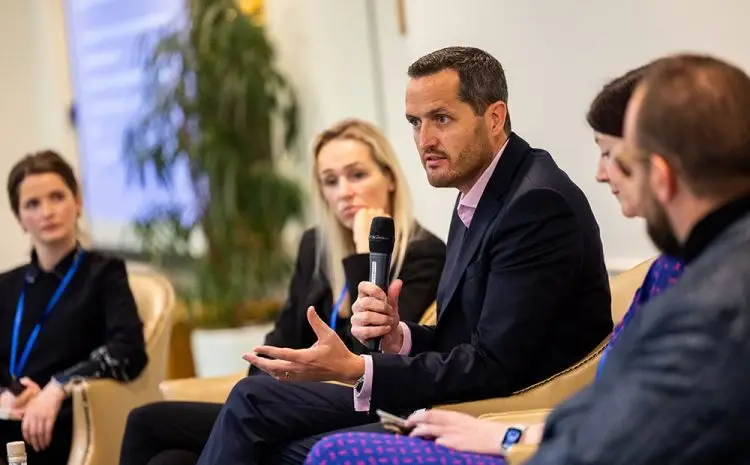The importance of trust between businesses, consumers and all stakeholders in the digital sector

Andy Eadle, Business Unit Director for the Communications Ombudsman, Trust Alliance Group
The Trust Alliance Group writes exclusively for RAID on why trust is so vital in the complex online space
In an interconnected world, trust has emerged as the linchpin holding together the digital sector’s intricate web of businesses, consumers, and stakeholders. It drives innovation, fosters collaboration, and fuels prosperity. In this era of digital dominance, the importance of trust cannot be overstated.
For businesses, trust is the foundation of success. Consumers are inundated with choices, and in this crowded marketplace, trust sets a company apart. When consumers trust a brand, they are more likely to make purchases, provide valuable feedback, and become loyal advocates. Trust is the currency of customer loyalty, and businesses that betray it often find themselves on the wrong side of public opinion and declining revenues.
Consumers, on the other hand, rely on trust to navigate the digital landscape safely. They want to know that the products they purchase are as advertised and that their digital experiences are safe and secure. Trust provides consumers with peace of mind in an otherwise uncertain digital world.
Moreover, trust in the digital sector extends beyond the consumer-business relationship. Stakeholders, including governments, regulators, and investors, also rely on trust to make informed decisions. A trustworthy digital sector ensures that governments can strike the right balance between innovation and regulation. Regulators can focus on addressing real issues without stifling progress, and investors can confidently support businesses that prioritise ethical practices.
To cultivate trust it needs to be there at the beginning, rather than attempting to correct at the end, and businesses must prioritise transparency, security, and ethical conduct. They must communicate openly with consumers in a timely manner, admit to mistakes when they occur, and demonstrate a commitment to rectifying them. Establishing trust is a long-term effort requiring consistency and integrity.
At the Trust Alliance Group we run multiple Ombudsman and dispute resolution schemes in the UK. These schemes can be good for the businesses involved and we see the most impactful issues that affect businesses raised by their users. We’re therefore able to provide insight and comparison across sectors to facilitate business improvements.
For consumers, this is a way to achieve a fair outcome quickly and for free. An alternative dispute resolution scheme is impartial and operates with governance to ensure fair outcomes. For example, in our energy scheme we uphold around three quarters of disputes that consumers bring to us.
Overall, trust is built through operating at that point of a dispute between a business and its consumer when we’re able to bring a fair outcome. All parties entering a scheme in good faith build trust and support better relationships between a business and its consumers.
Trust needs to be the lifeblood of the digital sector, and we have the capability to work as an alliance with businesses, consumers, and stakeholders. It underpins economic growth, innovation, and the seamless flow of information. To thrive in the digital age, businesses must recognise the importance of trust and work tirelessly to earn and maintain it. Only by fostering trust can we ensure that the digital sector continues to benefit society, the economy, and individuals alike.
(Photo: Andy Eadle, Business Unit Director for the Communications Ombudsman, Trust Alliance Group speaking at RAID 2023 in Brussels, alongside Rachael Gallagher, Privacy Policy Manager, EMEA, Meta; Marie Allikmaa, Director of the Business and Consumer Environment, Ministry of Economic Affairs and Communications, Estonia; Joanna Conway, Internet Regulation (Legal) and Legal ambassador for Cyber & Strategic Risk, Deloitte; and Kasper Drazewski, Senior Legal Officer, BEUC – The European Consumer Organisation. Photo Credit: vonmoos; Photo Copyright RAID)



